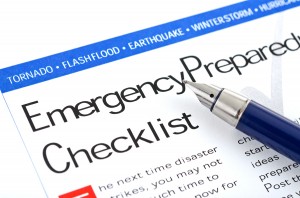 By Bridget Bean
By Bridget Bean
Imagine stepping into your store, restaurant or the office where you run your business after a wildfire has been contained, a tornado or hurricane has passed or floodwaters have receded. Unfortunately for thousands of business owners across the country, this scenario is more than just imagined.
Situations like these leave business owners to deal not only with the heartbreak of picking up the pieces in the aftermath, but also with a whole host of unanswered questions, like “How much is it going to cost me to rebuild?”, “Will my insurance cover all of this damage?” and “How will I pay my employees and vendors and cover the bills during the recovery phase?”.
During the past 18 months, the U.S. Small Business Administration (SBA) has approved more than 2,400 business disaster loans for a total of $372 million. SBA disaster loans go a long way toward revitalizing communities devastated by the economic fallout that follows disasters. At SBA, we also encourage small business owners to plan ahead—a solid preparedness plan will help your business recover sooner without taking on new debt.
It’s human nature to put off planning for unpleasant events in life. It’s easy to believe the big hurricane, wildfire, earthquake or flood is going to happen somewhere else or to someone else. While those cataclysmic disasters are, thankfully, rare, a simple sprinkler system accident inside your place of business can destroy expensive inventory and equipment and can just as surely shut your business down for days or even for good.
Here are a few preparedness basics to consider:
- Review your insurance coverage. Contact your insurance agent to find out if your coverage is right for your business, and make sure you understand the policy limits. Ask about Business Interruption Insurance, which compensates you for lost income and covers operating expenses if your company has a temporary shutdown after a disaster.
- Establish a solid supply chain. If all of your vital external vendors and suppliers are local, the disaster that strikes you will also strike them and each of you will struggle to recover. Diversify your list of vendors for key supplies to include companies outside your local area, if possible. Create a contact list for contractors and vendors you plan to use in an emergency, and find out if those suppliers have a recovery plan in place. File this list with other important documents in an off-site location that is accessible and protected.
- Plan for an alternate location. Do some advance research for alternate locations for your company if a disaster forces you to relocate. For example, contact a local real estate agent to get a list of available vacant office space or make an agreement with a neighboring business to share office space if needed. Establish a plan for employees to telecommute until the office has been rebuilt.
When it comes to disaster recovery, the Federal Emergency Management Agency, also known as FEMA, is SBA’s partner, providing assistance to individuals in the form of grants and housing assistance. When it comes to preparing for emergencies, www.ready.gov is a good place for tips on building a disaster plan for your home or business.
The SBA also has teamed with the American Red Cross and Agility Recovery Solutions to provide online resources to help small businesses prepare for unexpected disasters. You can find out more at www.sba.gov/prepare.
The financial and emotional cost of rebuilding a business after a disaster can be overwhelming. However, with a business continuity plan in place, you’ll be able to rebound and reopen quickly in a stronger position to contribute to the economic recovery of your community.
About the Author
 Bridget Bean is the acting regional administrator for the United States Small Business Administration and district director of the Washington Metro Area District Office. As regional administrator for Region 3, Bean is responsible for the delivery and management of the SBA’s small business programs, financial assistance and business development program initiatives throughout the region. During her time with the SBA, Bean has held leadership positions in key areas such as procurement, field operations and the Office of the Inspector General, and she is considered a subject matter expert on a wide range of business topics.
Bridget Bean is the acting regional administrator for the United States Small Business Administration and district director of the Washington Metro Area District Office. As regional administrator for Region 3, Bean is responsible for the delivery and management of the SBA’s small business programs, financial assistance and business development program initiatives throughout the region. During her time with the SBA, Bean has held leadership positions in key areas such as procurement, field operations and the Office of the Inspector General, and she is considered a subject matter expert on a wide range of business topics.


